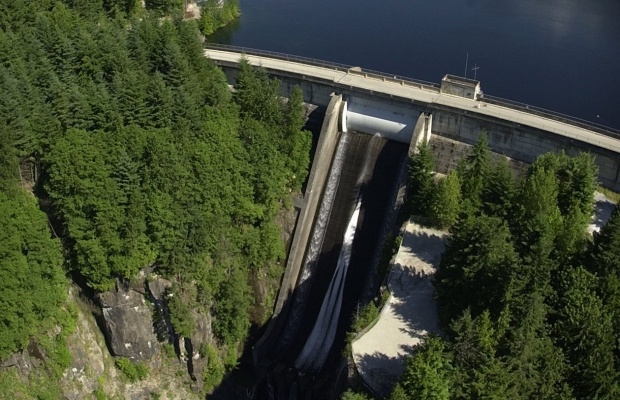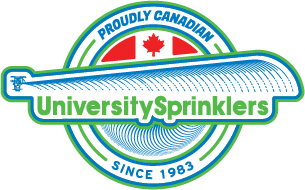 How ready is Vancouver to address severe water shortages, should the region experience severe drought at some point? As someone who was involved in its latest iteration of this plan from a policy standpoint, I like to think we are pretty well prepared!
How ready is Vancouver to address severe water shortages, should the region experience severe drought at some point? As someone who was involved in its latest iteration of this plan from a policy standpoint, I like to think we are pretty well prepared!
Every June 1, Metro Vancouver’s watering restrictions go into effect, and we all dutifully set our automatic irrigation systems to operate within these watering restrictions, while still enjoying healthy lawns and gardens. These restrictions represent Stage One of the Water Shortage Response Plan.
It’s worth noting that none of these restrictions, even under Stage Four, apply to the use of rain water, gray water, any forms of recycled water. So if you are practicing Rainwater Harvesting, you have it made in the shade… if you can find any!
So what happens if we have much lower than expected precipitation over the winter months, and our reservoirs start to run a bit low? This is what the plan looks like in greater detail…
Stage One (happens every year effective May 15):
- Lawn sprinkling will be restricted to three periods a week, mornings only.
- Cemetery lawns, ornamental lawns belonging to municipal facilities, and grassed boulevards will not be exempt and may be watered only within the three-weekly times noted above. Operation of sprinklers for children’s play will not be exempt from these restrictions. Automated lawn sprinkler systems will not be exempt.
- Exemptions:
- Sports playing fields and school yards, because their size makes them difficult to irrigate within the time limits, they are generally built on sand bases which do not hold moisture, and because replacement costs are high. Some artificial turf also needs to be watered for safety reasons.
- Municipal parks, because their size makes them difficult to irrigate within the time limits. However, municipalities will reduce sprinkling of parks, playing fields, etc. to minimum levels required to maintain these areas in useable condition. E.g. sand-based fields may require more frequent watering.
- Lawns at golf courses and turf farms, because the restrictions are not intended to cause undue economic hardship or disruption to a business for which lawns are the primary product or service being provided. However, municipalities will request that golf course operators cut water use on fairways by as much as possible.
- Artificial turf requiring wetting and outdoor tracks requiring hosing for dust control or safety.
- Newly-planted lawns will be allowed to be watered outside of restricted times, but will be required to obtain a municipal permit to be displayed on the lawn.
- Watering of flower and vegetable gardens, decorative planters, shrubs and trees will be allowed.
- Filling of pools, spas, water play parks, and fountains will be allowed.
- Washing of cars or boats will be permitted, but prudent use of water will be encouraged. Washing must be done using a spring-loaded shutoff nozzle.
Stage Two:
- Lawn sprinkling will be restricted to one morning a week only
- Municipal parks, cemetery lawns, ornamental lawns belonging to municipal facilities, and grassed boulevards will not be exempt.
- Hosing of outdoor surfaces (e.g. driveways, sidewalks, roofs) will not be allowed unless required to avoid public health and safety concerns or to prepare a surface for painting/sealing or similar treatment, and must be done using a spring-loaded shutoff nozzle.
- Pressure washing is equivalent to hosing of an outdoor surface, and will not be permitted except to prepare a surface for painting, sealing or similar treatment. Pressure washing for the purpose of aesthetic cleaning will not be permitted. This will apply to both private and commercial pressure washing.
- Ornamental fountains must be shut down. This includes residential, commercial, institutional and government fountains.
- Only water play parks with user-activated switches will be permitted to operate.
- Exemptions:
- Golf courses may water greens and tee areas normally; fairways may only be watered once weekly. Where applicable, signage indicating the use of non-GVWD water will be encouraged.
- Sports playing fields, school yards and sand-based playing fields may be watered at minimum levels required to maintain areas in useable condition.
- Artificial turf requiring wetting and outdoor tracks requiring hosing for health or safety reasons.
- Newly-planted lawns will be allowed to be watered outside of restricted times, but will be required to obtain a municipal permit to be displayed on the lawn.
- Watering of flower and vegetable gardens, decorative planters, shrubs and trees and turf at commercial turf farms will be allowed.
- Washing of cars or boats will be permitted, but prudent use of water will be encouraged. Washing must be done using a spring-loaded shutoff nozzle.
Stage Three:
- All forms of lawn watering using treated drinking water will be banned completely, for sprinklers of any type. New lawns, cemetery lawns, ornamental lawns belonging to municipal buildings, and grassed boulevards will not be exempt.
- Watering of shrubs and trees, flower and vegetable gardens, and decorative planters will not be permitted unless done by hand using a spring-loaded shutoff nozzle nozzle, containers or drip irrigation systems.
- Watering of gardens and planters using sprinklers or soaker hoses is prohibited.
- Pressure washing is equivalent to hosing of an outdoor surface. Only commercial pressure washing to prepare a surface for painting, sealing or similar treatment will be permitted. Pressure washing for the purpose of aesthetic cleaning will not be permitted. Private pressure washing will be prohibited.
- Exterior washing of vehicles (e.g. cars, motorcycles, recreational vehicles, trucks, boats and other marine vessels) will be prohibited, except for safety (windows, lights, licenses) and only then if using a springloaded shutoff nozzle. This includes residential, commercial, institutional and government vehicles.
- Ornamental fountains must be shut down. This includes residential, commercial, institutional and
government fountains. - Only water play parks with user-activated switches will operate.
- Filling or refilling of garden ponds, hot tubs, or swimming pools will be prohibited.
- Exemptions:
- Watering of turf at turf farms and flowers and vegetable at commercial gardens.
- Commercial car washes may continue to operate in this stage, as studies have shown that commercial car washes use significantly less water per vehicle than manual washing.
- Golf courses may water greens and tee areas at minimum levels required to maintain areas in useable condition; fairways may not be watered.
- Sports playing fields (including sand-based) and school yards may be watered at minimum levels required to maintain areas in useable condition.
- Artificial turf requiring wetting and outdoor tracks if required for dust control or safety reasons.
- Hosing of outdoor surfaces (e.g. driveways, sidewalks, roofs) only if required to avoid public health and safety concerns or to prepare a surface for painting/sealing or similar treatment.
Stage 4: Emergency Water Use Restrictions
Restrictions are the same as Stage 3 except for:
- Any form of watering (even if done by hand, containers, soaker hoses or drip irrigation) using treated
drinking water will be prohibited for:- commercial flower gardens
- residential flower gardens
- residential vegetable gardens
- trees and shrubs
- golf courses
- turf farms
- new lawns
- sports playing fields (including sand-based)
- municipal parks
- cemeteries
- ornamental lawns belonging to municipal buildings, residences or businesses
- school yards
- artificial turf
- outdoor tracks
- grassed boulevards
- Municipal permits for watering new lawns will be discontinued.
- Commercial or private pressure washing and hosing of any outdoor surfaces will not be allowed unless ordered by a regulatory authority (e.g. WCB, public health inspectors) for health and safety reasons.
- Filling or refilling of garden ponds, hot tubs, or swimming pools will be prohibited.
- Municipal and commercial water parks will be shut down.Municipal outdoor pools will be closed, and winterization of those pools will be deferred until Stage 4
is lifted by the GVWD Commissioner. - All commercial car washes will be shut down.
- Municipalities will shut down faucets in parks and public spaces (does not apply to drinking fountains with spring-loaded shutoff nozzle).
- In addition to the outdoor water restrictions of this stage, the GVWD will request that industries that consume large amounts of indoor water implement voluntary reductions/postponements in production during Stage 4.
- Municipalities will increase their respective enforcement and penalties for violations of the water restrictions with each successive stage of the WSRP.
So, now you know the plan! Notably, since 1993 we have only once advanced to Stage 2 of this water conservation plan. That was in the late summer of 2003. However, it’s good to know that Metro Vancouver has a plan in place for the worst case scenario!
Note: Photograph by: Ward Perrin, Vancouver Sun
